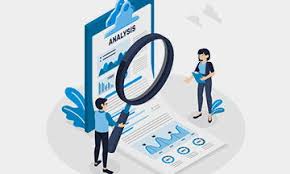Public Policy Analysis in Data-Driven Approaches Training Course
Public Policy Analysis in Data-Driven Approaches Training Course equips professionals with the analytical tools and frameworks required to assess, design, and implement effective policies through data-driven insights.

Course Overview
Public Policy Analysis in Data-Driven Approaches Training Course
Introduction
In an increasingly data-centric world, public policy formulation and evaluation must rely on robust, evidence-based methodologies. Public Policy Analysis in Data-Driven Approaches Training Course equips professionals with the analytical tools and frameworks required to assess, design, and implement effective policies through data-driven insights. Emphasizing real-time policy challenges and solutions, this course bridges the gap between theory and practice by integrating big data, machine learning, and advanced statistical modeling into the policy cycle.
Participants will engage in hands-on training with policy simulation tools, open data platforms, and impact evaluation techniques. Whether working in government, international agencies, or research institutions, learners will emerge with the ability to interpret complex datasets, build predictive models, and craft persuasive policy recommendations. This course supports sustainable governance, smart public service delivery, and agile policymaking for the modern era.
Course Objectives
- Understand the fundamentals of public policy analysis using data-driven methodologies.
- Apply statistical and econometric models for evidence-based policymaking.
- Utilize machine learning and AI tools in policy forecasting and impact evaluation.
- Analyze open government data and big data for public policy solutions.
- Build data visualization dashboards for policy reporting and communication.
- Conduct stakeholder mapping and engagement through data analytics.
- Develop skills in GIS and spatial data analysis for regional policy planning.
- Implement monitoring and evaluation (M&E) frameworks using real-time data.
- Leverage cloud-based tools for collaborative policy development.
- Apply data ethics and privacy principles in public policy environments.
- Conduct cost-benefit analysis and policy simulations using R and Python.
- Create actionable policy briefs from complex data insights.
- Integrate agile and design thinking into data-driven governance.
Target Audiences
- Policy Analysts and Advisors
- Government and Public Sector Employees
- Nonprofit and NGO Leaders
- Data Scientists and Statisticians
- Urban and Regional Planners
- Academic Researchers in Social Policy
- International Development Professionals
- Graduate Students in Political Science or Public Administration
Course Duration: 5 days
Course Modules
Module 1: Foundations of Public Policy and Data
- Overview of Public Policy Cycles
- Role of Data in Modern Policymaking
- Types and Sources of Policy-Relevant Data
- Principles of Evidence-Based Governance
- Challenges in Data Collection for Policy
- Case Study: Comparing Data-Driven and Traditional Policy in Urban Transport
Module 2: Quantitative Methods for Policy Analysis
- Introduction to Statistical Tools
- Regression and Econometric Models
- Hypothesis Testing and Confidence Intervals
- Quantifying Policy Impacts
- Data Cleaning and Preparation
- Case Study: Education Policy Outcomes in Sub-Saharan Africa
Module 3: Policy Modeling and Forecasting
- Introduction to Predictive Modeling
- Scenario Planning with Machine Learning
- Forecasting Social and Economic Trends
- Decision Trees and Random Forests
- Time Series Analysis for Public Policy
- Case Study: Forecasting Unemployment Post-Pandemic
Module 4: Big Data and Open Data for Governance
- Working with Open Government Datasets
- Understanding APIs and Web Scraping
- Integrating Big Data into Policy Dashboards
- Ethics in Open Data Use
- Using Data for Anti-Corruption Initiatives
- Case Study: Big Data for Tax Compliance Monitoring
Module 5: GIS and Spatial Data Analysis
- Introduction to GIS and Spatial Thinking
- Mapping Population and Resource Distributions
- Policy Applications in Urban Planning
- Spatial Inequality and Service Access
- Using QGIS and ArcGIS Tools
- Case Study: Health Access Equity in Rural Areas
Module 6: Monitoring, Evaluation, and Learning (MEL)
- Principles of Monitoring and Evaluation
- Logic Models and Theory of Change
- Real-Time MEL Using Mobile Data
- Feedback Loops in Policy Adjustment
- Visualization of Evaluation Data
- Case Study: Evaluating Social Protection Policies in Asia
Module 7: Communication and Policy Storytelling
- Creating Data Visualizations (Tableau, Power BI)
- Writing Impactful Policy Briefs
- Infographics and Dashboards for Policymakers
- Storytelling with Data
- Public Engagement with Policy Insights
- Case Study: Climate Action Reporting via Visual Dashboards
Module 8: Innovation and Agile Policymaking
- Design Thinking in Public Sector
- Agile Policy Development Cycles
- Rapid Prototyping and Feedback Integration
- Tools for Iterative Policy Design
- Building Innovation Labs in Government
- Case Study: Digital ID Rollout Using Agile Methods in Africa
Training Methodology
- Interactive expert-led sessions
- Case-based simulations and group discussions
- Hands-on lab exercises using real datasets
- Use of open-source tools (R, Python, QGIS)
- Evaluation through mini-projects and policy briefs
- Continuous mentorship and feedback sessions
Register as a group from 3 participants for a Discount
Send us an email: info@datastatresearch.org or call +254724527104
Certification
Upon successful completion of this training, participants will be issued with a globally- recognized certificate.
Tailor-Made Course
We also offer tailor-made courses based on your needs.
Key Notes
a. The participant must be conversant with English.
b. Upon completion of training the participant will be issued with an Authorized Training Certificate
c. Course duration is flexible and the contents can be modified to fit any number of days.
d. The course fee includes facilitation training materials, 2 coffee breaks, buffet lunch and A Certificate upon successful completion of Training.
e. One-year post-training support Consultation and Coaching provided after the course.
f. Payment should be done at least a week before commence of the training, to DATASTAT CONSULTANCY LTD account, as indicated in the invoice so as to enable us prepare better for you.